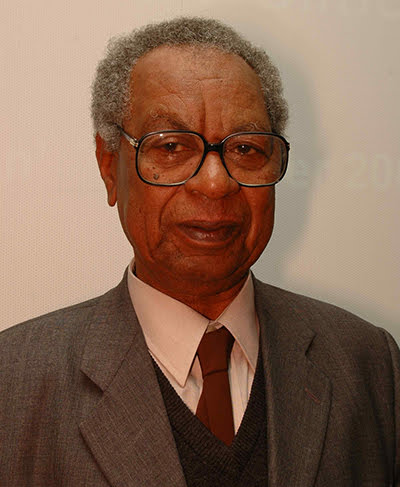Al-tayeb Salih

July 12: Al-Tayeb Salih born in Karmokol, near al-Debba and Merowe in Northern Sudan.
Attends a khalwah (Qur'anic school) as a child. Moves to Port Sudan to go to middle school. A British administrator visited his school and selected him, because of his good English language skills, to greet the governor, who intended to visit the school shortly thereafter. TS, who did not then understand the British role as colonizers, cried out "Long live the governor."
TS moves to Khartoum to attend Gordon Memorial College (later Khartoum University). Studies agricultural sciences, but leaves the program to teach in a private school in the city of Rifa'ah. Eventually enrolls in a teacher training program.
TS moves to London as part of the first generation of Sudanese educated in Britain in preparation for independence. He works for the BBC Arabic Service and studies economics and political science at the University of London.
TS's first short story, "Nakhla 'ala al-jadwal" (A Palm Tree on the Stream) is published.
Sudan becomes an independent nation.
TS named head of the Arabic Drama section of the BBC. TS will live abroad for the rest of his professional life, eventually becoming Director-General of Information in Qatar and then working with UNESCO in Paris and as UNESCO's representative in Qatar
TS publishes "Dawmat Wad Hamid" (The Doum Tree of Wad Hamid). The story was first published in Aswaat (Voices), a magazine whose founder and editor, Denys Johnson-Davies, was a close friend and supporter of Salih and his work.
TS publishes his first collection of short stories. The highlihgt of the collection is The "Doum Tree of Wad Hamid," a dramatic monologue, began TS's Salih’s literary exploration of the outsider and modernity intruding on village life.
Marries Julia Maclean (a Scot), and settles in south-west London.
Mawsim al-Hijra ila al-Shamal published in Arabic. The publication of al-Hiwar (Dialogue), the magazine that first serialized the novel, was halted temporarily in Kuwait because of what was considered the novel's risqué material and language. Since its publication in book form, the novel has been banned in some Arab universities and even in Sudan.
Season of Migration to the North published in Beirut, translated by Denys Johnson-Davies.
TS's next novel, Bandarshah: Daw al-Bayt, published. It is set in the village of Wad Hamid, and the reader is immersed into the life and everyday occurrences of the village. TS mixes the real and the ordinary with the imaginary and myths of the village in a complex, non-linear narrative.
Maryud: Al-Juz' al-thani min Bandarshah (Maryud: Part Two of Bandarshaw) published.
TS publishes an essay, "Where Did These People Come From?" critical of the Islamist regime in power in Sudan. In it he questions the displacement of Sudanese culture and values in the name of Islam and "national salvation."
A translation of the two Bandershaw volumes published in English as Bandarshah.
A group of Salih's friends and fans form a committee to honor him, and collect $20,000 for TS's personal use. But TS indicates his desire to use the money to start a cultural initiative supporting literary life in Sudan.
Season of Migration to the North is declared "the most important Arabic novel of the 20th century" by the Arab Literary Academy.
The first Yearly Award is bestowed in Sudan.
The Abdelkarim Mirghani Cultural Centre launches another prize, the Tayeb Salih Short Story Writing Prize for Youth.
17 February: dies